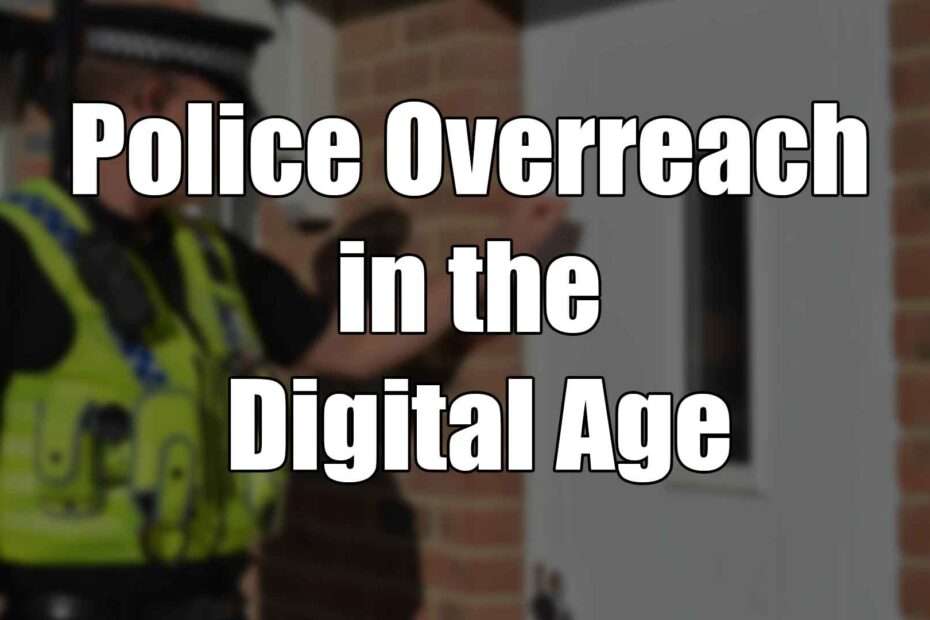Police Overreach in the Digital Age
The Ongoing Saga of Speech Policing
In a troubling demonstration of institutional memory failure, British police forces continue to exhibit concerning behaviour regarding social media expression, mere moments after the resolution of a high-profile investigation into Telegraph columnist Allison Pearson. This latest incident suggests a deeply ingrained pattern that raises serious questions about law enforcement priorities and the state of free expression in modern Britain.
The Contemporary Context
The fresh controversy centres on South Wales Police’s response to social media commentary regarding a promotional video about asylum seekers in Wales. This development emerges against the backdrop of the recently concluded Pearson affair, where Essex Police’s handling of a year-old tweet drew widespread criticism and eventual public censure.
The Latest Incident: A Detailed Examination
The current situation involves an anonymous social media commentator known as “Cillian”, whose critical response to a Welsh Refugee Council video has attracted police attention. The video in question, produced in 2023, featured young schoolgirls in what was originally intended as a welcome message for Ukrainian refugees, though this specific context was notably absent from the final production.
The Timing and Resource Allocation Question
Perhaps most telling about this case is the timing of the initial complaint – 11:30 PM on a Saturday evening. This timing merits particular scrutiny when considered against the backdrop of pressing criminal matters typically demanding police attention during weekend evenings, including:
– Violent confrontations in town centres
– Domestic violence incidents
– Serious property crimes
– Public order offences
– Emergency response requirements
Statistical Context and Police Priorities
The investigation’s launch becomes even more questionable when examining current crime statistics in south-west Wales:
– A nearly 40% increase in shoplifting incidents
– An 11% rise in weapon possession cases
– Escalating knife-related offences
– Stretched emergency response resources
– Limited investigative capacity for serious crimes
The Original Content in Context
The video at the centre of this controversy warrants careful examination. Created as a school project, it featured young pupils listing various benefits available to refugees, including:
– Child benefit provisions
– Housing assistance
– Educational access
– Healthcare services
– Additional support mechanisms
Educational and Societal Implications
This incident raises significant questions about the approach to discussing complex social issues in educational settings:
– The presentation of immigration policy to young students
– The balance between compassion and practical considerations
– The role of critical thinking in addressing complex social issues
– The appropriateness of involving children in politically charged messaging
– The broader implications for public discourse on sensitive topics
Institutional Responses and Aftermath
The fallout from this incident has prompted various institutional reactions:
– The Welsh Refugee Council’s efforts to distance itself from the content
– The school’s apparent regret over the project
– The removal of related materials from official platforms
– Ongoing public debate about appropriate boundaries
– Questions about institutional judgment and responsibility
The Broader Context of Police Intervention
This case exemplifies a concerning trend in British policing:
– The allocation of resources to social media monitoring
– The response to politically charged complaints
– The balance between public safety and free expression
– The role of police in mediating public discourse
– The influence of social pressure on policing priorities
Social Media and Public Discourse
The incident highlights several key aspects of contemporary social media interaction:
– The rapid spread of controversial content
– The role of community fact-checking and context provision
– The impact of anonymous commentary on public debate
– The intersection of free speech and responsible discourse
– The challenges of moderating online conversations
Future Implications and Considerations
This situation presents British police forces with a crucial decision point regarding their approach to social media commentary. The options before them include:
– Dismissing complaints that don’t meet criminal thresholds
– Establishing clear guidelines for social media-related investigations
– Prioritising resources toward serious criminal activities
– Developing more nuanced approaches to online discourse
– Maintaining public confidence while upholding free expression
The Way Forward
The resolution of this case will likely set important precedents for how similar situations are handled in future. Key considerations should include:
– The appropriate threshold for police intervention
– The balance between public interest and resource allocation
– The protection of free expression in digital spaces
– The role of law enforcement in online discourse
– The maintenance of public order without overreach
This ongoing situation serves as a crucial test case for British policing in the digital age, highlighting the delicate balance between maintaining public order and protecting fundamental freedoms. The response to this incident will likely influence future approaches to similar situations, making it essential for all stakeholders to carefully consider the broader implications of their actions.

